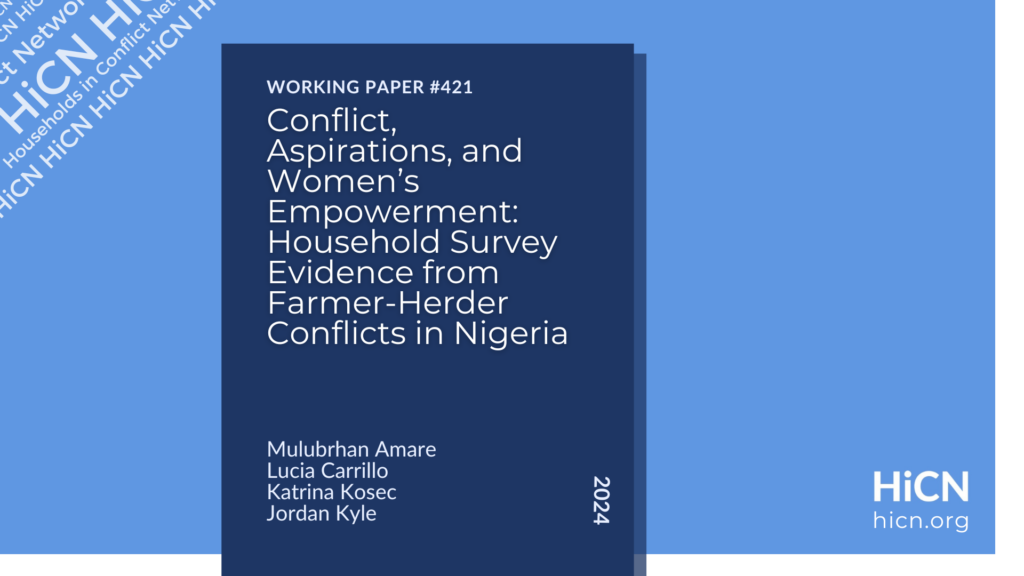
Using original survey data from three states in rural, southwestern Nigeria, this study examines the relationship between conflict intensity at various distances and the empowerment and aspiration levels of women whose households are primarily engaged in farming. We analyze geo-coded data on violent clashes between ethnic groups that primarily herd livestock for their livelihood and those that primarily farm crops; these clashes are growing more frequent across West Africa with climate-induced land degradation, as herding populations are moving further south in search of grazing land. Our outcomes of interest include women’s economic and social aspirations, and women’s economic, social, and political behaviors that could impact their long-run empowerment. We find that exposure to higher conflict intensity is closely linked to adverse outcomes, including income loss, assault, and forced migration. Higher conflict intensity is also associated with lower women’s economic and social aspirations, though social aspirations are more affected by proximate conflicts, while economic aspirations are more affected by more distant conflicts. Women’s economic, social, and political activities also vary with conflict-affectedness. With more conflict nearby, women are more likely to own their own off-farm businesses and less likely to own an off-farm business in which they share ownership with their husband. With more exposure to distant conflicts, women devote less time to off-farm labor and more time to agricultural labor. Near conflict, women are less likely to be members of mutual aid groups and to contact government officials and more likely to engage local security groups for protection and to be members of political parties. These differences could have long-run implications for women’s empowerment.